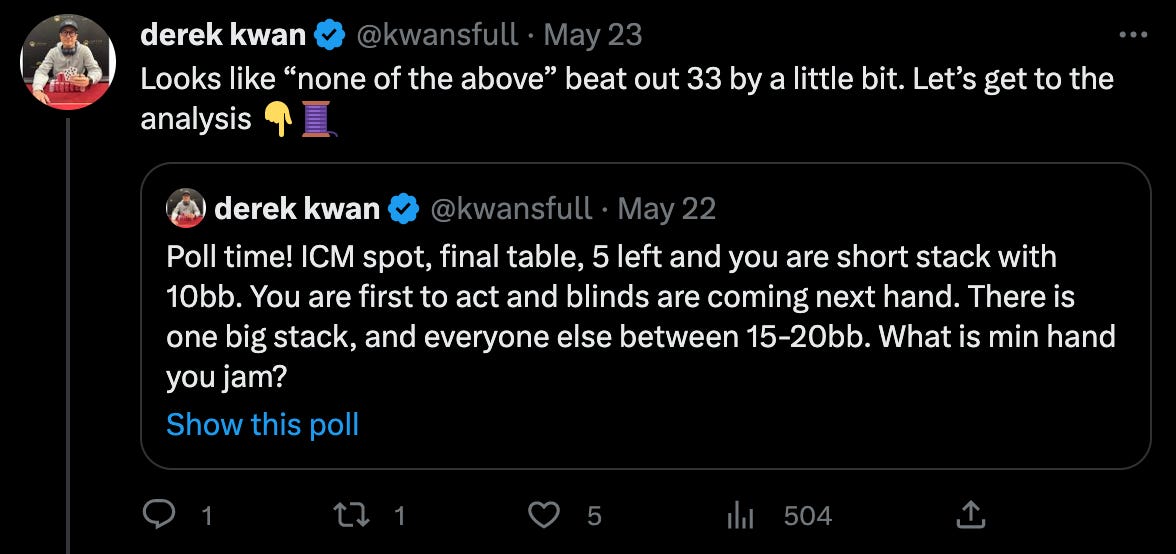ICM for Dummies Part 1
ICM is critical concept to understand in poker tournaments, guiding your decisions when the most money is at stake.
Poker ICM for Dummies
When you delve deeper into the world of poker, you quickly realize that the game is not solely about luck or bluffing, but also strategy and mathematics. One of the key concepts you must grasp to become a successful tournament player is the Independent Chip Model (ICM). Although it might sound complicated, I'll simplify it in this article and hopefully, you'll understand how it works and why it's crucial for your poker strategy.
Understanding Basic Poker Concepts
Before diving into ICM, it's crucial to understand some basic poker concepts, particularly equity and tournament structure.
Equity in poker refers to your expected share of the pot given your current hand and all possible outcomes.
Tournament poker is different from cash games as each player starts with the same number of chips, and the objective is to win all the chips. When players lose all their chips, they are out of the tournament, and the remaining players move up in the payout structure, also known as the prize pool.
What is ICM in Poker?
ICM stands for Independent Chip Model. It's a mathematical model used to calculate a player's overall equity in a poker tournament. Simply put, it's a way of understanding how much your current stack of chips is worth in terms of real money, allowing you to make better decisions during a tournament. Unlike cash games, your equity in a tournament is not just determined by the chips you have in front of you. It also depends on the payout structure and the chip stacks of your opponents.
ICM takes all these factors into account and provides a way to calculate your "tournament equity," or the expected value of your tournament payout based on the current state of the game.
Why is ICM Important?
The ICM model is particularly useful when making decisions in certain stages of a poker tournament, especially when nearing the bubble (the point at which the remaining players will all be in the money), and at the final table, when the pay jumps and prizes become significant. In these stages, understanding ICM can guide your decisions about whether to call, raise, or fold.
Applying the ICM model correctly can make a significant difference in your overall performance in a poker tournament. Since the goal of a tournament is to be the last player standing, the model can help guide you to make decisions that might seem counterintuitive but increase your chances of surviving longer in the tournament.
In tournament poker, not all chips are created equal. Winning an additional chip doesn't necessarily increase your tournament equity by the same amount, especially as you get deeper into the tournament. This is because the payout structure in poker tournaments is typically top-heavy, meaning that the top few finishers get the majority of the prize pool.
ICM helps you understand this dynamic by assigning a real money value to your chip stack based on the current state of the tournament. It can guide you in making decisions, especially when considering risky plays that could result in a large chip gain but also carry a high risk of busting out of the tournament.
Up next in part 2: How to calculate ICM and how to apply it correctly
If you want a shortcut to ICM, try the ICM mode for tournaments in GTO Wizard. Get 10% off with this link!





